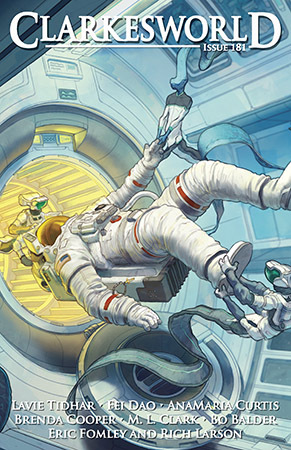Rachel S. Cordasco's Blog, page 18
October 26, 2021
Review: The Ark Sakura by Kōbō Abe

translated by Juliet Winters Carpenter
first English translation: Alfred A. Knopf, 1988
my version: Penguin Classics Science Fiction, 2020
384 pages
grab a copy here or or through your local independent bookstore or library
I’ve read much about the great Japanese speculative author Kōbō Abe, but I hadn’t read anything by him. Thanks to Penguin Classics Science Fiction and the copy of The Ark Sakura that they sent me, such is no longer the case.
This meandering, bizarre, funny-and-very-much-not-funny tale reminded me of Stanislaw Lem’s Memoirs Found in a Bathtub (whose protagonist roams endless corridors and meets the strangest people) and Yasutaka Tsutsui’s collection Bullseye! (in which characters find themselves in the most absurd and unlikely situations). The Ark Sakura, however, tricks you in the beginning into thinking that you’re reading a story with a distinct arc (pun so intended!).
We first meet the protagonist, Mole, on one of his frequent jaunts downtown. Since he lives deep inside a quarry, which he refers to as his ark or ship, Mole doesn’t get much human interaction, a situation that suits him perfectly well. And yet, Mole has realized that at some point, he really must start recruiting others who will live in his ark with him once the nuclear apocalypse hits. Because it will hit…one day. And why not prepare for the worst as soon as possible?
Downtown at a market, Mole encounters a man selling eupcaccia–a small, legless insect that feeds on its own excrement. Mole is entranced and buys one, but then offers the seller a pass to his ark. After a run-in with two shills (sakura) who also stop at the eupcaccia dealer’s stall, Mole decides to scurry back to his quarry and think more about who else to invite. Despite booby-traps and wild dogs, the shills (a man and a woman of uncertain relationship) get to the innermost part of the quarry before Mole and the insect dealer, and before he knows it, Mole has a small crew assembled. This group will be responsible for repopulating the Earth once the planet has recovered from nuclear devastation.
And here’s where the whole plot starts to spiral downward, like the objects that Mole throws into the gigantic toilet in the main room of the quarry. By “downward” I don’t mean to suggest that the text becomes boring or unreadable; rather, I mean that we dive from the heights of ideas and expectations down to the bottomless pit of greed, jealousy, and a lust for power that characterizes human nature.
More and more people enter the ark over the course of the novel, displacing Mole (whom others are calling “Captain” at this point) and transforming the entire enterprise into a picture of authoritarianism. The imagined threat of a nuclear disaster that could happen at any time is subsumed by the human desire to control that which can be controlled.
It’s no surprise that Abe influenced many of Japan’s greatest speculative (and non-speculative) writers. I intend to read more of his work in the near future.
October 25, 2021
“Another Place”: a new story by Clelia Farris

Clelia Farris’s story “Another Place,” translated from the Italian by yours truly, is now up at Samovar Magazine. It is a haunting tale of love, loneliness, and energy. Enjoy!
October 19, 2021
Review: Slipping by Mohamed Kheir
 I reviewed the intriguing novel Slipping for Strange Horizons.
I reviewed the intriguing novel Slipping for Strange Horizons.
Here’s an excerpt from the review:
Slipping drops you right into the middle of things. A man named Ahmed has realized that his dead father is speaking through his mother and issuing orders for the running of the household, as though death is no obstacle. Just as you settle in to learn more about Ahmed and his extraordinary circumstances, chapter two switches gears, and suddenly the narrator is speaking in the first person about a man named Bahr who has found a way to stand between passing streetcars at the exact spot where one won’t get run over. Just as the streetcars pass one another, the narrator sees his dead mother, who remarks, “You’ve grown, Seif.”
Read the entire review here.
October 2, 2021
Out This Month: October
SHORT STORIES
“Legend of the Giant” by Fei Dao, translated from the Chinese by Ken Liu (Clarkesworld, October 1)
COLLECTIONS
 Everything Good Dies Here: Tales from the Linker Universe and Beyond
by Djuna, translated from the Korean by Adrian Thieret (Kaya Press, October 26)
Everything Good Dies Here: Tales from the Linker Universe and Beyond
by Djuna, translated from the Korean by Adrian Thieret (Kaya Press, October 26)
The stories brought together in this collection introduce for the first time in English the dazzling speculative imaginings of Djuna, one of South Korea’s most provocative SF writers. Whether describing a future society light years away or satirizing Confucian patriarchy, these stories evoke a universe at once familiar and clearly fantastical. Also collected here for the first time are all six stories set in the Linker Universe, where a mutating virus sends human beings reeling through the galaxy into a dizzying array of fracturing realities. Blending influences ranging from genre fiction (zombie, vampire, SF, you name it) to golden-age cinema to Conrad’s Heart of Darkness, Djuna’s stories together form a brilliantly intertextual, mordantly funny critique of the human condition as it evolves into less and more than what it once was.
NOVELS
 The Movement
by Petra Hůlová, translated from the Czech by Alex Zucker (World Editions, October 5)
The Movement
by Petra Hůlová, translated from the Czech by Alex Zucker (World Editions, October 5)
The Movement’s founding ideology emphasizes that women should be valued for their inner qualities, and not for their physical attributes. Men have been forbidden to be attracted to women on the basis of their bodies. While some continue unreformed, many submit—or are sent by wives and daughters—to the Institute for internment and reeducation. Our narrator, an unapologetic guard at one of these reeducation facilities, describes how the Movement started, her own personal journey, and what happens when a program fails. She is convinced the Movement is nearing its final victory—a time when everybody will fall in line with its ideals. Outspoken, ambiguous, and terrifying, this socio-critical satire of our sexual norms sets the reader firmly outside of their comfort zone.
 Life Sciences
by Joy Sorman, translated from the French by Laura Vergnaud (Restless Books, October 12)
Life Sciences
by Joy Sorman, translated from the French by Laura Vergnaud (Restless Books, October 12)
Ninon Moise is cursed. So is her mother Esther, as was every eldest female member of her family going back to the Middle Ages. Each generation is marked by a uniquely obscure disease, illness, or ailment—one of her ancestors was patient zero in the sixteenth-century dancing plague of Strasbourg, while Esther has a degenerative eye disease. Ninon grows up comforted and fascinated by the recitation of these bizarre, inexplicable medical mysteries, forewarned that something will happen to her, yet entirely unprepared for how it will alter her life. Her own entry into this litany of maladies appears one morning in the form of an excruciating burning sensation on her skin, from her wrists to her shoulders.
Embarking on a dizzying and frustrating cycle of doctors, specialists, procedures, needles, scans, and therapists, seventeen-year-old Ninon becomes consumed by her need to receive a diagnosis and find a cure for her ailment. She seeks to break the curse and reclaim her body by any means necessary, through increasing isolation and failed treatment after failed treatment, even as her life falls apart. A provocative and empathic questioning of illness, remedy, transmission, and health, Life Sciences poignantly questions our reliance upon science, despite its limitations, to provide all the answers.
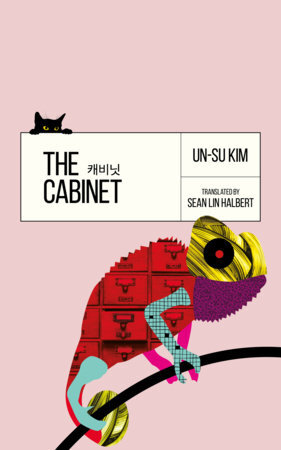 The Cabinet
by Un-su Kim, translated from the Korean by Sean Lin Halbert (Angry Robot, October 12)
The Cabinet
by Un-su Kim, translated from the Korean by Sean Lin Halbert (Angry Robot, October 12)
Cabinet 13 looks exactly like any normal filing cabinet…Except this cabinet is filled with files on the ‘symptomers’, humans whose strange abilities and bizarre experiences might just mark the emergence of a new species. But to Mr Kong, the harried office worker whose job it is to look after the cabinet, the symptomers are a headache; especially the one who won’t stop calling every day, asking to be turned into a cat. A richly funny and fantastical novel about the strangeness at the heart of even the most everyday lives, from one of South Korea’s most acclaimed novelists.
REVIEWS
Review: To the Warm Horizon by Choi Jin-young
 I reviewed the haunting novel To the Warm Horizon for World Literature Today.
I reviewed the haunting novel To the Warm Horizon for World Literature Today.
Here’s an excerpt from the review:
This pandemic year has felt like a dystopia to many of us—we were told to stay away from family and friends, urged to remain inside our homes, encouraged to stock up on food. Yet, as businesses and schools start opening back up, we continue to be vigilant, never knowing if what happened in March 2020 could happen again. Still, humanity is picking itself up again and looking toward the future, like we always do. Thus I could say that reading To the Warm Horizon—a postapocalyptic tale about a deadly virus and its violent aftermath—might make one feel better about the year we’ve just endured, since (thankfully) nothing like what Choi Jin-young describes has happened. On the other hand, reading about a group of Koreans moving across Russia, stealing whatever food they can, and fighting off similarly desperate wanderers with knives and guns might bring back our worst fears from 2020. Let me add one disturbing fact: this novel was first published in Korean in 2017.
Read the entire review here.
September 25, 2021
REVIEW: ELEMENTAL
 I reviewed the wonderful anthology Elemental for Strange Horizons.
I reviewed the wonderful anthology Elemental for Strange Horizons.
Here’s an excerpt from the review:
Elemental—with stories translated from the Hebrew, Norwegian, Persian, Japanese, Kurdish, German, French, and Polish—is a lovely and sometimes disturbing exploration of the intersection of humanity and nature. This book, according to Two Lines, asks, “How can we understand our complex, ever-evolving relationship to the Earth and its elements?” Cities fall into ruin, dams and pipelines shift natural waterways, weather researchers brave harsh conditions; and yet, through it all, the protagonists learn to adjust to nature’s unpredictability and the inevitability of decay.
Read the entire review here.
September 4, 2021
Out This Month: September
SHORT STORIES
[image error]“The Winter Garden” by Regina Kanyu Wang, translated from the Chinese by Emily Jin (Clarkesworld, September 1).
COLLECTIONS
 The Truth and Other Stories
by Stanislaw Lem, translated from the Polish by Antonia Lloyd-Jones (MIT Press, September 14).
The Truth and Other Stories
by Stanislaw Lem, translated from the Polish by Antonia Lloyd-Jones (MIT Press, September 14).
Of these twelve short stories by science fiction master Stanisław Lem, only three have previously appeared in English, making this the first “new” book of fiction by Lem since the late 1980s. The stories display the full range of Lem’s intense curiosity about scientific ideas as well as his sardonic approach to human nature, presenting as multifarious a collection of mad scientists as any reader could wish for. Many of these stories feature artificial intelligences or artificial life forms, long a Lem preoccupation; some feature quite insane theories of cosmology or evolution. All are thought-provoking and scathingly funny.
ANTHOLOGIES
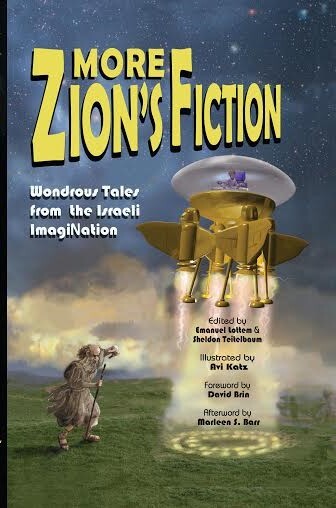 More Zion’s Fiction: Wondrous Tales from the Israeli ImagiNation
, edited by Emmanuel Lottem and Sheldon Teitelbaum, translated from the Hebrew by Emmanuel Teitelbaum (Zion’s Fiction Partners, September 15).
More Zion’s Fiction: Wondrous Tales from the Israeli ImagiNation
, edited by Emmanuel Lottem and Sheldon Teitelbaum, translated from the Hebrew by Emmanuel Teitelbaum (Zion’s Fiction Partners, September 15).
MZF will feature a foreword by David Brin, an afterword by Marleen S. Barr, a new intro by the editors, and stories by Elana Gomel, Keren Landsman, Guy Hasson, Nadav Almog, Hila Benyovitz-Hoffman, Avram Davidson, Rami Shalheveth, Lili Daie, Pesakh Amnuel, Hamutal Levin, Gail Hareven, Assaf Gavron, Galit Dahan Carlibach, Yael Furman, Daphne Feldman, and Rotem Baruchin. The book will also include a short essay by Ehud Maimon.
REVIEWS
August 25, 2021
Review: Fast Forward Japan by Juza Unno
 translated by J. D. Wisgo
translated by J. D. Wisgo
Arigatai Books
June 21, 2021
162 pages
grab a copy here or or through your local independent bookstore or library
Read more about Juza Unno and the translation of these stories here.
“Four Dimensional Man”
“The World in One Thousand Years”
“The Theory of Planetary Colonization”
“Mysterious Spatial Rift”
“The Living Intestine”
“The Last Broadcast”
“Adventures of the Dinosaur-Craft”
“Crematoria”
“Eighteen O’Clock Music Bath”
Let me begin by thanking J. D. Wisgo for bringing Juza Unno, the “founding father of Japanese science fiction,” into English. Because of his love of the genre and desire to give these stories the recognition they deserve, Anglophone readers now have access to some of the earliest Japanese tales of time travel, body horror, dystopia, and more.
Unno wrote his speculative stories from the 1920s through the 1940s, incorporating recent discoveries, theories, ideas, and inventions into his work. The colonization of other planets, android technology, time travel, and spatial rifts all served as the basis for his ideas about the future of humanity–whether marked by destruction or triumph. Often, Unno’s stories leave the reader feeling unmoored, adrift in a world that may be a dream, part of another dimension, or operating under unknown laws. In “Four Dimensional Man,” the narrator learns from a fortune teller that he sometimes becomes invisible because he is actually a creature from another dimension, accidentally poking into our own dimension here and there and taking on human form. The upending of reality happens once again in “Mysterious Spatial Rift,” where we never truly learn if the narrator is dreaming or being set up as a murderer.
With “The World in One Thousand Years,” Unno offers us a (by now) recognizable story about a cryogenically-frozen human waking up in the future and learning about the strange ways of its inhabitants. In Unno’s version, a scientist wakes up a thousand years in the future to find out that humanity has achieved a kind of immortality by replacing worn out organs with artificial ones. Conveyor-belt roads move people around and civilization has moved underground. And yet, as the scientist learns, rockets full of people are constantly being shot toward Venus for the purposes of recolonization, since an asteroid is due to hit the Earth. Mars is out of the question as an alternative because its inhabitants have declared war on humanity and have been shooting down as many Venus-bound rockets as they can.
One of the strangest stories in this collection, “The Living Intestine,” focuses on a mad scientist who takes that organ (recently removed from a deceased person) and experiments on it until it can move about freely on its own and even communicate. It’s pretty clear that some terrible consequences will come from this, but the story is nonetheless gripping.
If you really want a “mad scientist” story, look no further than the novella that concludes this collection: “Eighteen O’Clock Music Bath.” Here you get a brilliant but unstable scientist, highly-advanced androids, a corrupt and authoritarian government, and a populace driven mad by a mandated music regimen. And did I mention a Martian attack?
So check out Fast Forward Japan and enjoy.
August 8, 2021
Out This Month: August
SHORT STORIES
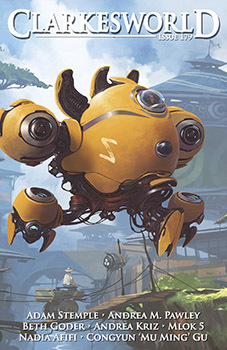 “An Instance” by Mlok 5, translated from the Czech by Julie Nováková (Clarkesworld, August 1).
“An Instance” by Mlok 5, translated from the Czech by Julie Nováková (Clarkesworld, August 1).
“The Serpentine Band” by Congyun ‘Mu Ming’ Gu, translated from the Chinese by Tian Huang (Clarkesworld, August 1).
 “Now You Feel It” by Andrea Chapela, translated from the Spanish by Emma Törzs (Lightspeed, August).
“Now You Feel It” by Andrea Chapela, translated from the Spanish by Emma Törzs (Lightspeed, August).
July 17, 2021
Review: Futurespotting by Francesco Verso
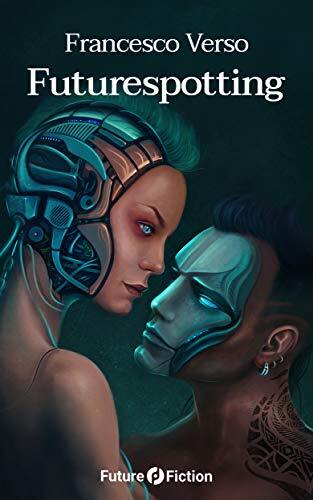
various translators
Future Fiction
March 21, 2021
194 pages
“Fernando Morales, This is Your Death!” tr. Sally McCorry
“Midsummer Future,” tr. Sally McCorry
“Italianskij Tikaj Tikaj,” tr. Tom Crosshill
“90 Cents,” tr. Sally McCorry
“Flush,” tr. Georgia Emma Gili
“The Green Ship,” tr. Michael Colbert
“Celestial Formatting,” tr. Georgia Emma Gili
“The Assassin’s Level,” tr. Sally McCorry
“Awakenings,” tr. Sarah Jane Webb
“AIdolon,” tr. Sarah Jane Webb
“Two Worlds,” tr. Sally McCorry
If you’ve read Francesco Verso’s work before, you know of his deep interest in transhumanism, whether through the interfacing of humans and machines, genetic engineering, or the results of evolution in the far future.
Of the eleven stories included in this collection, the majority deal with the ways in which humans interact with, and even inhabit, various forms of technology. “Fernando Morales, This is Your Death!” is the story of an old man lying his way onto a euthanasia reality show because he doesn’t want to die alone, while virtual reality is raised to a whole new “real” level in “Midsummer Future” and “The Assassins’ Level.” And while the former imagines a world in which only virtual sex is permitted, “Celestial Formatting” goes further by permitting us to read the thoughts of two people who have transmigrated via a computer program.
The two stories “AIdolon” and “Awakenings” fit perfectly into this collection, having first appeared in Words Without Borders a few years ago for a feature I guest-edited on Italian speculative microfiction in translation. In “AIdolon,” corpses from traffic accidents are “revived” by computer chips to work as accident-recovery personnel, while “Awakenings” imagines a crash victim waking up from a coma in a hospital only to find that her family “temporarily” replaced her with an android look-alike.
Verso is also interested in how discrete pieces of technology can alter humans’ interactions with one another. In “90 Cents,” a young woman visiting Milan stumbles upon a criminal gang that exploits children by putting LED trackers into their necks and then sending them out to commit crimes. Illegal ear buds are the focus of “Flush,” where a city has become so disturbingly loud that one man is willing to risk punishment just to sample “pure” silence.
Three of the stories in Futurespotting focus on migration and the idea of “home.” Refugees from Africa are saved from downing by the eponymous Green Ship, which ultimately takes them to a new geological formation that becomes their new homeland. An Italian medic far from home, in “Italianskij Tikaj Tikaj,” escapes the brutal futuristic war into which he was drafted, eventually finding comfort in the home of a simple Ukrainian family. And in “Two Worlds” (my favorite story of the collection), two different post-human species work together to turn the Earth back from one that includes a few tall trees and one vast ocean to a planet with land masses.
Like much of Verso’s work, this collection takes current ethical and technological questions and debates and turns them into highly-original narratives that make us think carefully about the kind of future we want.

